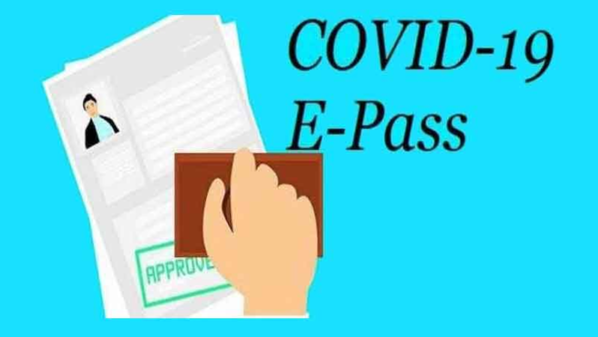post office monthly income scheme interest rate 2023 | monthly income scheme of post office | post office deposit scheme | best monthly income scheme | post office monthly income scheme for senior citizens | post office senior citizen scheme | mis scheme of post office
The Post Office Depository Service provides a variety of investment options with fixed returns. Because the sovereign guarantee backs all of these schemes, this is a government-backed investment choice. These plans are thus safer investment options than equity shares and many fixed-income options.
The Post Office Monthly Income Scheme, which has an interest rate of 7.4% from (From 01.07.2023, Timely Change), is one of the highest-earning programs, along with the Post Office Savings Account, Post Office Recurring Deposit, and Post Office Time Deposit. The scheme pays out interest on a monthly basis, as the name implies. The Ministry of Finance recognizes and approves this program, as do other post office programs.

Post Office Monthly Income Scheme 2023
A monthly Income Scheme (MIS) is a sort of investment plan that assures investors returns at a 7.4% yearly interest rate. You can receive these returns as a fixed monthly income.
Post Office Monthly Income Scheme (POMIS) is the Indian Postal Service’s investment program. It ensures the investor recurring monthly income at a guaranteed annual rate of return of 7.4%. Experts feel that MIS is one of the finest investment methods because it has three benefits: it preserves your asset, offers higher returns than debt instruments, and provides a predictable monthly income.
POMIS Features
- It is possible to transfer a POMIS account from one post office to another. The best part is that it is completely free.
- For each post office deposit, you must open a new account. The advantage is that a single person can create ‘N’ accounts (of course up to the upper limit).
- Reinvesting in POMIS is an option for the maturity amount realized at the completion of the term.
- It is possible to add another nominee to the investor’s Post Office Monthly Income Scheme account. As a result, in the unfortunate case of his death, his nominee is eligible to receive his money.
- The good news is that TDS (Tax Deduction at Source) would not deplete your capital in this circumstance. The bad news is that these interest earnings are taxable.
- The maturity time for MIS is 5 years. Ideally, you should withdraw the funds after five years. At the end of the period, you will receive a total return on your investment. Naturally, you will continue to get your monthly salary during this time. But what if you need to withdraw the money before 5 years?:-
- If you take the money back within a year, you get nothing.
- Withdraw the deposit in one to three years; you will receive a refund back after a nominal 2% deduction (as a penalty)
- Withdraw the deposit after three years; a nominal 1% reduction will be made from it (as a penalty).
Repercussions of an Early Withdrawal
| POMIS Withdrawal Time | Premature Withdrawal Outcomes |
| Before completing one year | Zero benefits |
| Between 1st and 3rd year | The entire deposit will refund after deducting a 2% penalty |
| Between 3rd and 5th year | The entire corpus will refund with a 1% penalty |
POMIS Disadvantages
- The Post Office Monthly Income Scheme does not provide a tax break under Section 80C. Simply put, you cannot deduct the cost of your POMIS investment.
- If the monthly payments are not withdrawn, they become inactive and generate no interest.
- Even if there is no TDS applied to the Post Office MIS, interest income is taxable in your hands.
Eligibility Requirements
POMIS was designed for risk-averse investors who want a reliable source of monthly payments but are strongly opposed to equities. Seniors and retired people who have recently entered the no-paycheck zone and are willing to make a one-time investment with the sole purpose of earning a safe recurring income in order to maintain their lifestyle are the greatest candidates. Simply put, the Post Office Monthly Income Scheme is for people who want a consistent source of income over time.
To invest, the investor needs only to be an Indian resident. NRIs cannot invest in the Post Office Monthly Income Scheme. The key characteristic of this post office savings program is the 10-year entry age limit. As a result, a minor as young as 10 years old can open a POMIS account in his or her name. A minor may only invest a specific amount of money.
How to Open POMIS Account?
It is simple to open a POMIS account. To open a POMIS account follow the steps given below:-
- Open a post office savings account if you do not already have one.
- Pick up a POMIS application form at the post office.
- Turn in the properly filled form, a photocopy of your ID, residential papers, and two passport-size photographs to the post office. Keep the originals on hand for verification.
- Obtain the signatures of the witness or nominee on the form.
- Pay the down payment in cash or by cheque. The account opening date will appear on a post-dated cheque.
- Once the processing is complete, the Post Office executive will provide you with the details of your newly opened account.
Other Beneficial Schemes Posts
- Post Office Saving Schemes 2022: FD, RD, Monthly Income Scheme
- प्रधानमंत्री वय वंदना योजना: ऑनलाइन रजिस्ट्रेशन, पात्रता
- प्रधानमंत्री युवा रोजगार योजना 2023 आवेदन फॉर्म – PMRY Online Registration, Loan Form
- प्रधानमंत्री सुरक्षा बीमा योजना 2023: PM Suraksha Bima Yojana Online Apply
- PM UDAY Yojana डीडीए 2023: पंजीकरण प्रक्रिया
Post Office Monthly Income Scheme FAQs
If you do not withdraw your deposit when it matures, it will remain in the account for two years and receive simple interest in accordance with Post Office Savings Account rules.
Yes. This program would benefit senior persons because they may deposit their entire life savings into the account and earn interest to cover their monthly expenses.
If you move from one city to another, transferring your POMIS account to the Post Office in the new city is quick and free.



